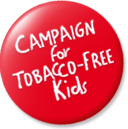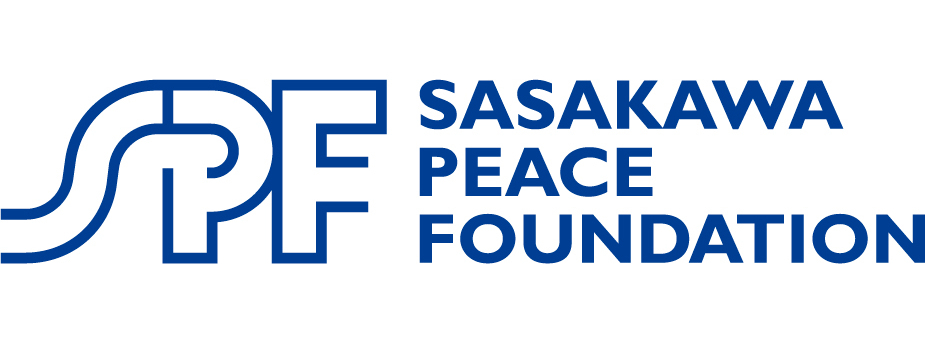Our Partners
UNFPA Philippines
UNFPA is the United Nations sexual and reproductive health agency. Its mission is to deliver a world where every pregnancy is wanted, every childbirth is safe and every young person’s potential is fulfilled. The agency was created in 1969, with a Filipino, Mr. Rafael M. Salas, heading the agency as its first Executive Director.
Under UNFPA Philippines’ 8th Country Programme 2019-2023, it provides support to the full implementation of the Responsible Parenthood and Reproductive Health Act and the revamped National Family Planning Programme, to further reduce maternal mortality and morbidities and end unmet need for family planning in support of the Department of Health and POPCOM among many partners. Assistance to reducing teenage pregnancy is another key focus. UNFPA also assists the Department of Education for full operationalization of the school-based, gender-sensitive, comprehensive sexuality education (CSE) curriculum in accordance with international standards.UNFPA Philippines also prioritizes strengthening policies and actions to address gender-based violence, in normal settings and in the aftermath of an emergency.
PLCPD and UNFPA work together towards improved integration of sexual and reproductive health and reproductive rights, as well as the prevention of and response to gender-based violence and harmful practices, into universal health coverage-related policies and plans, and other relevant laws, policies, plans, and accountability frameworks.
UNICEF
UNICEF is the United Nations agency that focuses on children. It works in the world’s toughest places to reach the most disadvantaged children and adolescents – and to protect the rights of every child, everywhere. Across more than 190 countries and territories, UNICEF does whatever it takes to help children survive, thrive, and fulfill their potential, from early childhood through adolescence.
UNICEF is the world’s largest provider of vaccines and supports child health and nutrition, safe water and sanitation, quality education and skill building, HIV prevention and treatment for mothers and babies, and the protection of children and adolescents from violence and exploitation.
PLCPD began working with UNICEF in 2014 during the latter’s 6th Country Programme for Children. The partnership with UNICEF’s Social Policy, Health and Nutrition, WASH, and Child Protection mainly focused on legislative advocacy which resulted in the passage of laws namely, Kalusugan ng Mag-Nanay Act or the protection of mothers and their babies during the first 1000 days (Republic Act or RA 11148), Special Protection of Children in Situations of Armed Conflict (RA 11188), Raising the Age to Determine Statutory Rape (RA 11648), and Anti-Online Sexual Abuse and Exploitation of Children and Child Sexual Abuse and Exploitation Materials (RA 11930), among others.
We Effect
We Effect was founded in 1958 to support the development of democratic organisations and societies that have the capacity to articulate the rights and needs of their members in respect of work, influence, services, incomes and livelihoods.
We Effect works in more than 20 countries in Asia, Eastern Europe, Latin America and Africa through our regional offices in partnership with local CSO, farmer organisations, cooperative federations and other democratic organisations.
We Effect applies a human rights-based approach in its international development cooperation programmes, assisting people living in poverty to secure their rights and entitlement to adequate living conditions and broad empowerment.
Under the Growing Resilient Organizations Working Towards Gender Equality, Transformative Housing, and Empowerment of the Ruralfolk (GROW TOGETHER) programme, We Effect Philippines supports PLCPD’s national advocacy work to promote the rights of farmers, fisherfolk, informal settlers, and the informal economy particularly women and children.
To complement national-level campaign efforts, We Effect launched the Developing and Strengthening CSO Capacities for Empowered Representation (DISCERN) project with PLCPD as the implementing partner that seeks to strengthen capacities of CSOs and develop policy champions for meaningful participation in good governance and government processes, with special focus on the thematic issues of adequate housing, gender equality, and environment and economic resilience. Co-funded by the European Union, the project aims to significantly contribute to enhancing inclusive and responsive local governance.
Campaign for Tobacco-Free Kids
The Campaign for Tobacco-Free Kids and the Tobacco-Free Kids Action Fund are the leading advocacy organizations working to reduce tobacco use and its deadly consequences in the United States and around the world.
Through strategic communications and policy advocacy campaigns, the Campaign for Tobacco-Free Kids and the Tobacco-Free Kids Action Fund work to change public attitudes about tobacco and promote proven policies that are most effective at reducing tobacco use and save the most lives.
CTFK supports PLCPD’s legislative advocacy for health-oriented tobacco regulation laws. Through this support, PLCPD and the Child Rights Network have also launched the Tobacco-Free Generation campaign, which prioritizes the protection of children and youth from the harms of tobacco and the tobacco industry.
UNHCR
UNHCR, the UN Refugee Agency, works to ensure that everybody has the right to seek asylum and find safe refuge, having fled violence, persecution or war at home was established in 1950. It has faced multiple crises on multiple continents, and provided vital protection and assistance to refugees, asylum-seekers, internally displaced and stateless people, many of whom have nobody left to turn to.
PLCPD works with UNHCR in providing safeguards and durable solutions for the overall well-being, identity, and inclusion of people forced to flee, stateless persons, and populations at risk of statelessness through legislative advocacy.
Among the PLCPD and UNHCR partnership’s priorities include advocacy for the bills protecting the internally displaced persons, refugee and stateless persons’ protection, gender-responsive amendment to naturalization laws, and facilitated administrative naturalization.
Sasakawa Peace Foundation
The Sasakawa Peace Foundation (SPF) is a Japanese private foundation and think tank established in 1986 to address increasingly complex global challenges on peace and security and ocean governance. In partnership with various stakeholders, SPF conducts research, presents policy recommendations, fosters international exchange and cooperation, and formulates governance system that covers oceans and lands.
In May 2024, PLCPD and SPF started a collaboration with the launching of SPF’s study Reconstructing masculinities: Gender dynamics after conflict in Aceh, Maluku and Bangsamoro Mindanao. The study emphasizes the crucial role of women in conflict situations and the importance of addressing persistent gender inequalities and structural barriers to attain long-lasting peace and security in the community.
The partnership continued with a project on popularizing the women, peace and security (WPS) agenda in policymaking to promote gender mainstreaming in conflict settings and recognize the importance of including women in peace processes, negotiations and decision-making.
Consuelo Foundation
Consuelo Foundation established its Philippine office in 1993. They collaborate very closely with local communities, private partners, and government authorities for evidence-based, context-sensitive initiatives that advance children’s rights. Consuelo designs holistic programs that empower vulnerable individuals and families, facilitate their healing, and strengthen child protection systems within the larger community.
Consuelo is an active member of the Child Rights Network, the largest alliance of government and non-government organizations advocating for child rights legislation and that is convened by PLCPD. Consuelo provides financial and technical support to bolster its campaign promoting positive parenting through legislative advocacy work and communications strategies.







